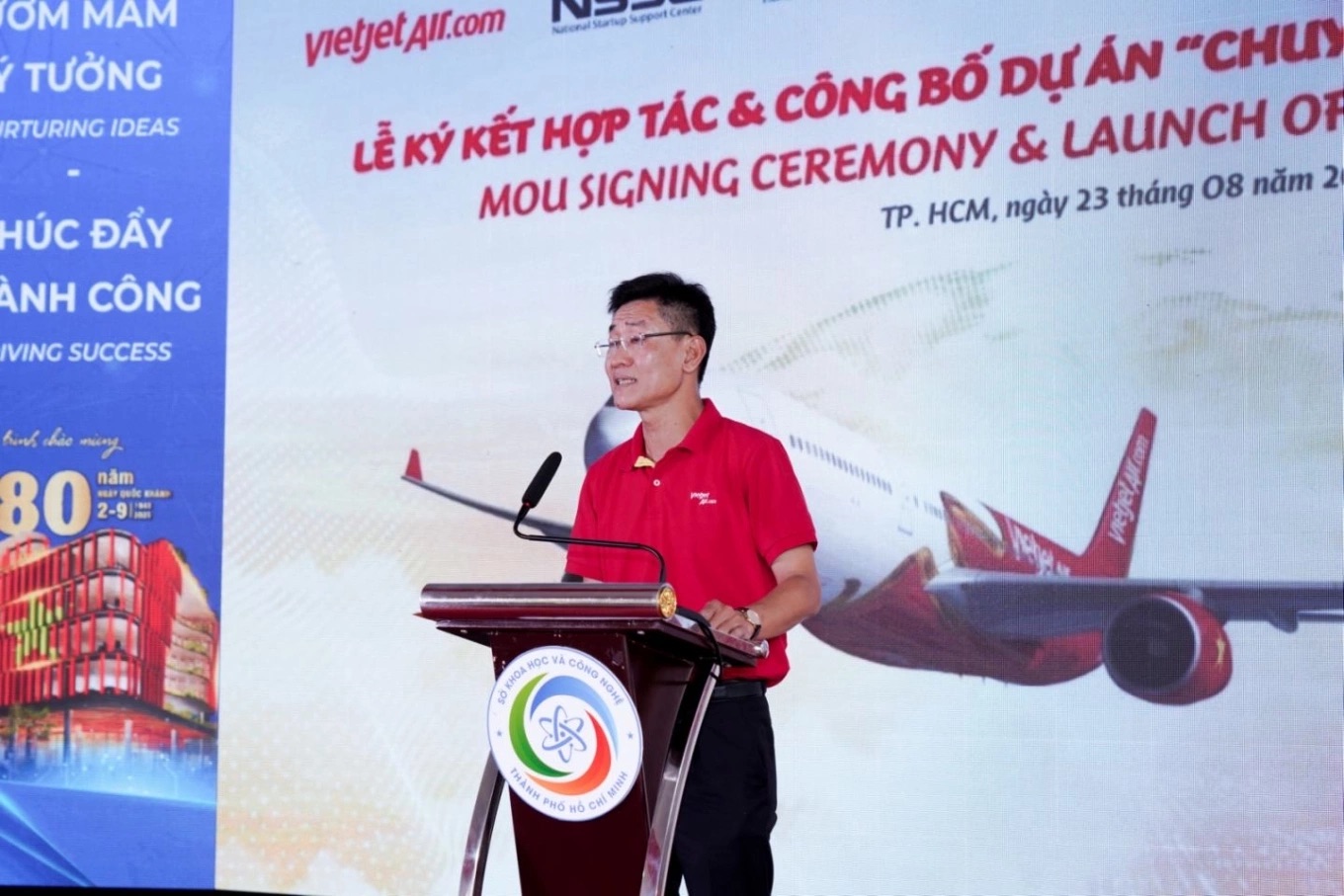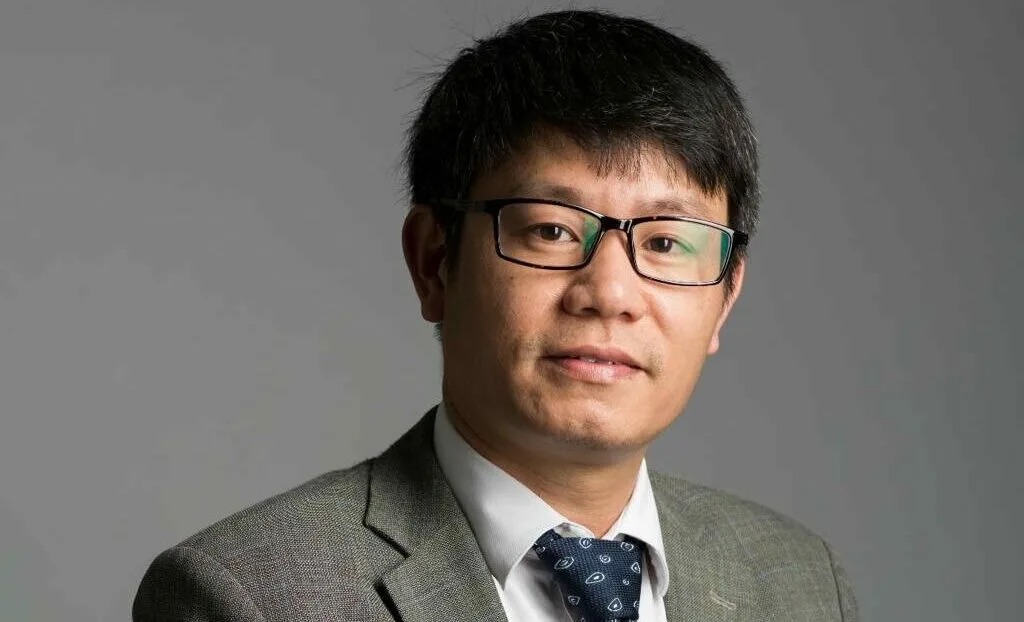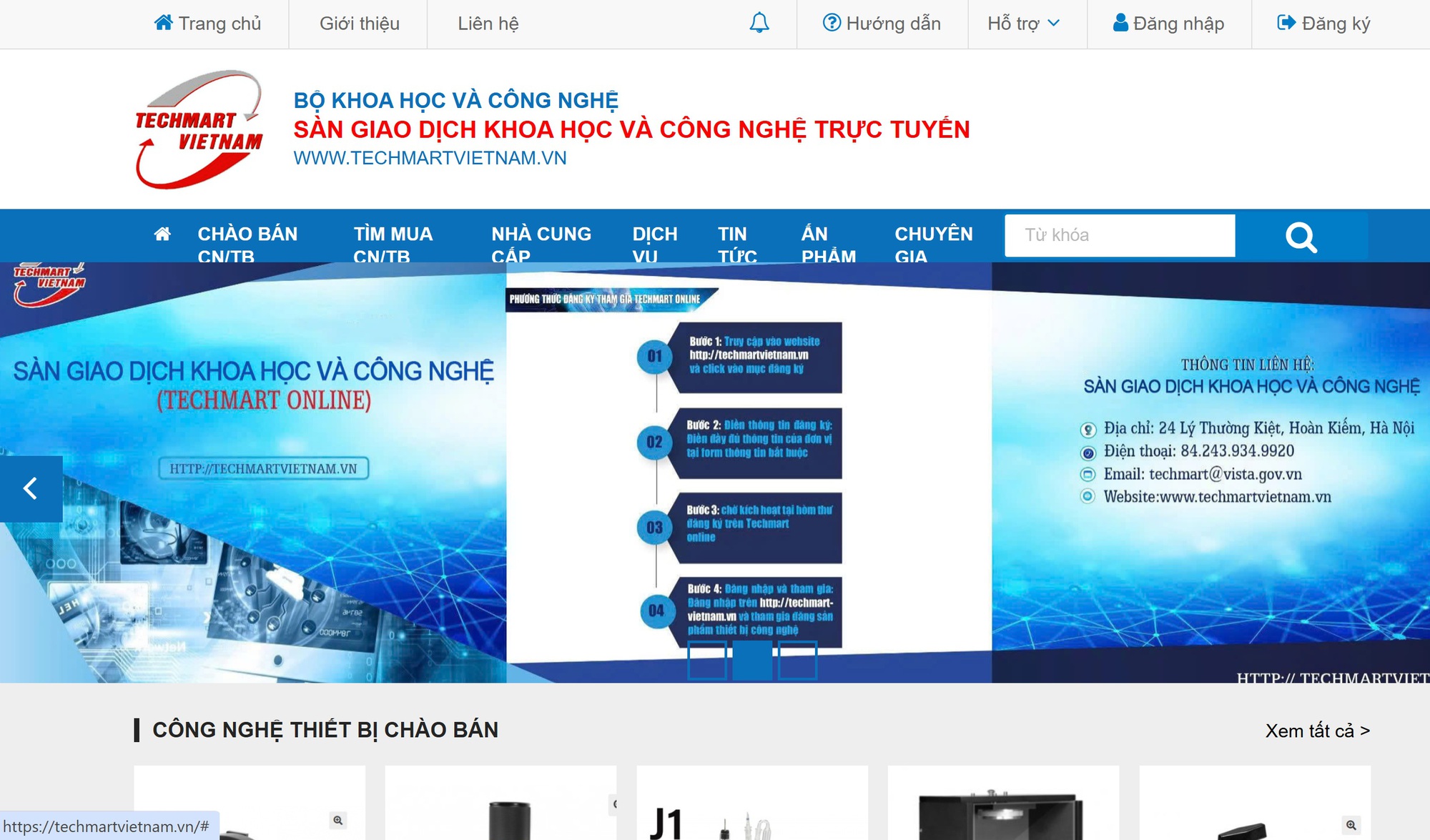Vietjet Launches “Startup Flight” to Bridge Vietnam-India Innovation
Vietjet, in partnership with Vietnam's National Startup Support Centre (NSSC) and India’s Amity Innovation Incubator, has launched the “Startup Flight” initiative to connect the startup ecosystems of Vietnam and India. More than just a symbolic move, Vietjet is leveraging both its flight routes and its growing regional presence to link startup hubs in Hanoi, Da Nang, and Ho Chi Minh City with innovation hotspots like New Delhi, Mumbai, Kochi, Bengaluru, and Hyderabad. The program aims to facilitate talent exchange, investment, and collaboration between the two countries.

The initiative targets high-growth sectors including Software & AI/Data, E-commerce & Retail, EdTech, and Transportation & Logistics. Individuals and teams from both nations can submit proposals, with the top eight selected for direct mentorship. Winners in each category will receive both a cash prize and round-trip tickets between Vietnam and India. This competition structure reinforces practical outcomes, while India’s role as a global tech powerhouse and Vietjet’s air connectivity provide a strong foundation for long-term partnerships.
“Startup Flight” is a strategic move that reflects Vietjet’s broader ambitions beyond aviation. By bridging Vietnam’s emerging startup scene with India’s established tech ecosystem, the initiative creates a rare opportunity for cross-border innovation. With mentorship, funding, and global exposure built in, this program not only supports young startups but also sets the stage for deeper collaboration between two dynamic economies.
SIFEM Doubles Down on Vietnam’s Startup Scene with $20M Bet
Switzerland’s development finance institution SIFEM committed $20 million to Excelsior Capital Vietnam Partners (ECVP)’s second fund, which targets $200 million to back mid-sized Vietnamese companies. This follows a $12 million investment SIFEM made into ECVP’s first fund in 2019. The second fund, which reached its first close at $100 million in December 2024, is expected to benefit significantly from SIFEM’s latest capital injection, pushing it closer to full fundraising. ECVP II plans to support 10–12 companies across healthcare, education, technology, and consumer sectors, acquiring active minority stakes through a mix of equity and quasi-equity instruments.

What sets this fund apart is its alignment with the 2X Challenge, an initiative that encourages gender-lens investing by targeting quality job creation and increasing women’s participation in the formal economy. Other notable backers in ECVP's earlier fund include the Development Bank of Japan, FMO, and Norfund. In 2025, Excelsior has already made notable deals with companies like Sota Tek (tech outsourcing), LCFoods (food processing), and Aladdin (restaurant operator), showing a balanced focus on technology and domestic demand.
SIFEM’s renewed commitment signals strong confidence in both Excelsior Capital and the long-term growth of Vietnam’s private sector. Despite global fundraising challenges, ECVP continues to draw institutional investors thanks to a clear strategy and solid performance. By targeting scalable mid-sized businesses and integrating social impact goals, the fund not only fuels Vietnam’s economic momentum but also builds credibility for the country’s investment environment on the global stage.
Vietnam Launches 5 Innovation Initiatives to Boost Tech and Startup Ecosystem
The Ministry of Science and Technology has unveiled five key initiatives aimed at strengthening Vietnam’s innovation landscape. Among the most notable is the launch of the Science and Technology Exchange Platform (techmartvietnam.vn), designed to connect supply and demand for new technologies and make the commercialization of research more efficient. Another major move is the National Initiatives Portal (sangkien.gov.vn), which centralizes the collection and sharing of ideas from businesses, universities, and research institutes, both domestically and internationally.

The initiatives are also closely aligned with Vietnam’s national tech priorities, including the Prime Minister’s Decision No. 1131, which outlines 11 strategic technology groups. A major highlight is the revamp of Techfest Vietnam 2025, the country’s flagship innovation event. This year, the event will adopt an open, hybrid model with outdoor stages and interactive spaces, aiming to better connect startups with consumers, investors, and the general public. Together, these efforts are positioning Vietnam as a more transparent, collaborative, and globally competitive innovation hub.
These initiatives signal a strong government push to modernize Vietnam’s science and technology ecosystem. By addressing fragmentation and creating platforms that support public engagement, funding, and digital transformation, the Ministry is laying important groundwork for long-term innovation. If executed effectively, these moves could attract more capital, inspire entrepreneurship, and make Vietnam’s tech strategy more investable for both local and international stakeholders.
Vietnam Streamlines Procedures to Boost Startup Investment
Vietnam’s Ministry of Finance has issued Decision No. 2915/QĐ-BTC, introducing a wave of administrative reforms to simplify how small and medium-sized enterprises (SMEs) and startup investment funds operate. Starting from September 15, many cumbersome procedures will be removed, most notably, the requirement for funds to publish establishment and capital information on the national SME support portal. Instead, this task will be managed at the provincial level, with business registration agencies reporting directly to the Ministry of Finance.

The new rules also mark a step forward in digital transformation. Companies can now submit applications online or directly to provincial agencies, with a commitment to processing within 15 working days. By making it faster and cheaper to register and manage startup funds, the government hopes to attract more venture capital into the startup ecosystem. The reform sends a clear message: Vietnam is serious about creating a more business-friendly, transparent, and efficient environment for innovation.
This is a timely and practical move that addresses the real barriers startups face, especially when it comes to fundraising. By streamlining bureaucracy and decentralizing procedures, Vietnam is not only making it easier for funds to form and scale, but also signaling confidence to both founders and investors. If implemented effectively, especially at the local level, this could unlock a new wave of capital inflow and set the foundation for a stronger, more dynamic startup economy.
Vietnam’s IPO Comeback: Market Heats Up with New Listings and Reforms
Vietnam’s equity market is entering a new phase of growth after nearly five quiet years, marked by a surge in high-profile IPOs. Major names like Vinpearl (VPL) have made a strong debut on HoSE with a market cap of around $6 billion, while F88 listed on UPCoM at the highest share price on the board. Taseco Land (TAL) has also cleared to list, signaling rising investor confidence. More big players are expected to follow, including brokerage firms (TCBS, VPBankS), retail giants like Mobile World, and several banks preparing to list or migrate to HoSE.

Regulators are also stepping up with proposals to streamline the IPO process. Key changes include reducing the post-IPO listing window to 30 days (from ≥90) and allowing funds to hold more pre-listing shares. Notably, there’s growing momentum to relax current IPO requirements, such as profitability rules that have long restricted tech startups from going public. According to Dragon Capital, IPO activity could reach $47.5 billion between 2027 and 2028, with the consumer sector alone contributing over $12 billion. In addition to new IPOs, supply is expected to increase as state-owned companies divest capital, offering more quality shares to the market.
This renewed wave of IPOs, backed by regulatory reform and growing investor interest, reflects Vietnam’s serious efforts to modernize its capital market. By lowering barriers for startups and encouraging state divestment, Vietnam is creating a more dynamic and inclusive market. If these changes are implemented effectively, they could unlock significant capital, support innovation, and drive long-term economic growth.
Genesia Ventures is an early-stage venture capital firm operating in Japan and Southeast Asia, with a strong belief in the long-term potential of Vietnam’s digital economy. Beyond providing capital, the fund actively supports startups through strategic guidance and connections to a broader regional network.
